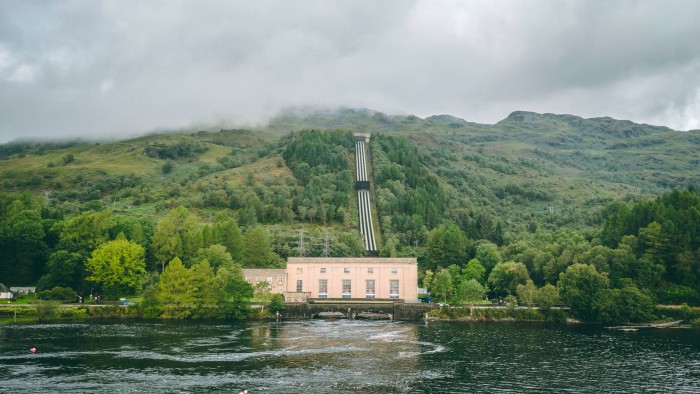Unlock the Editor’s Digest for free
Roula Khalaf, Editor of the FT, selects her favourite stories in this weekly newsletter.
One of the UK’s largest renewable electricity producers has reported a fall in output after dry weather hit production from its hydropower plants.
SSE said its output from renewables fell 4 per cent in the three months to the end of June compared with the same period last year, with lower hydropower output partially offset by a slight rise in production from wind turbines.
“Strong renewables operational availability was offset by unfavourable weather conditions across April and May,” the FTSE 100 company said.
England and Wales recorded their driest start to the year in decades.
The SSE trading statement highlights how energy output could be affected by climate change.
The UK’s Met Office said this week the country was experiencing “more frequent and intense weather extremes” with a rise in the number of very hot days, combined with periods of extreme rainfall or flooding as the warmer air holds more moisture.
SSE reported a quarter-on-quarter 40 per cent fall in hydropower generation from 653 gigawatt hours to 393 GWh. Wind farm output rose 8 per cent in the same period, from 1,943GWh to 2,096GWh.
The figures include planned output that SSE was ultimately paid to not produce, to balance out supply and demand.
The UK’s National Energy System Operator pays wind farms “constraint payments” to stop production when there is not enough cable capacity to transmit the electricity to where it is needed.
SSE added its financial expectations published in May “remain unchanged and continue to be subject to weather, market conditions and plant availability”.
The company has welcomed a decision by the UK government not to push ahead with proposals to split Britain’s wholesale electricity market into different zones where prices would depend on local supply and demand.
Supporters said this would make the market more efficient and reduce constraint payments, but opponents argued it would deter developers from building wind farms because it would create uncertainty about prices.
The UK government wants new wind and solar farms to be rapidly developed to meet its goal of decarbonising the power system by 2030.
SSE has its annual general meeting today. Chief executive Alistair Phillips-Davies is stepping down following the meeting after 12 years in charge, to be replaced by chief commercial officer Martin Pibworth.
